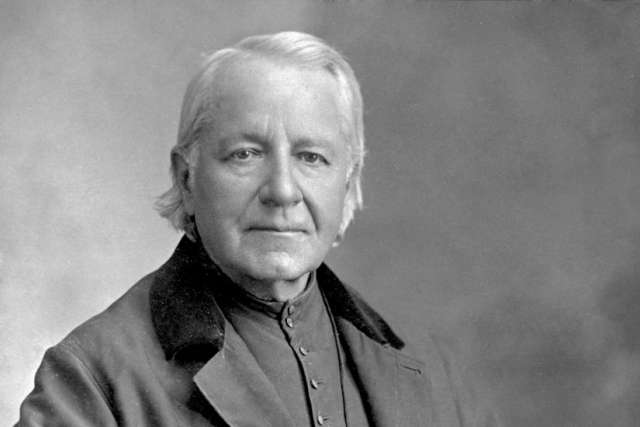They weren’t alone, of course. Recognition is due to several religious orders that walked in faith with the early settlers and nation builders. These priests and nuns laid a foundation of Christian values upon which a free and prosperous nation arose. But today we say thank you to the Oblates as they celebrate the 200th anniversary of the birth of their order in France and the 175th anniversary of their arrival to Canada.
The extent of their vast contribution could not have been imagined when four Oblate priests and two brothers arrived in Montreal in 1841. The French order was only 25 years old when it sent its missionaries to serve in what was then Lower Canada. From a base in Montreal the Oblates spread up the Ottawa Valley and by 1845 were evangelizing the vast, largely unsettled Prairies before eventually reaching the Arctic.
They weren’t perfect. Twenty-five years ago they were the first to extend a lengthy and sincere apology for their role in establishing and maintaining Indian residential schools across the West. The apology concluded with a pledge to focus on the Oblates’ original mission, to be missionary servants for those abandoned by society.
It was in the West that the Oblates really made their mark. No credible history of Western Canada can be written that fails to include chapters on the Oblates’ varied and valuable contribution. Arriving as missionaries to bring the Gospel to the aboriginal peoples, they built churches, founded dioceses and, over the years, became key players in education, health, culture, politics and social services.
They participated in several key historical events. Oblate Father Albert Lacombe helped calm the Riel Rebellion and later helped ensure peaceful progress for the Canadian Pacific Railway through native lands. Oblates, not wheat, are the original Prairie staple.
It is easy today to overlook the sacrifice of those who traded their comfortable European lifestyles for the hardships of the Canadian backwoods. But that would be a mistake. These missionaries went in search of people who had no one to care for their spiritual and worldly needs. They brought the Church to trappers and lumberjacks, to First Nations and Inuit, and to anyone else they encountered. By the end of the 19th century, Canadian-born Oblates were themselves becoming missionaries in South America and Africa.
As they celebrate 200 years, the Oblates deserve our congratulations and gratitude.


